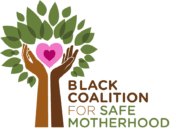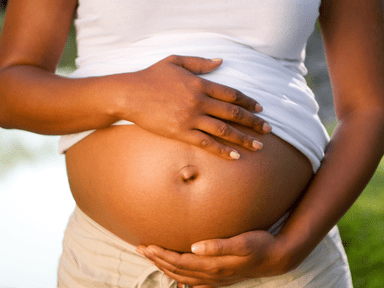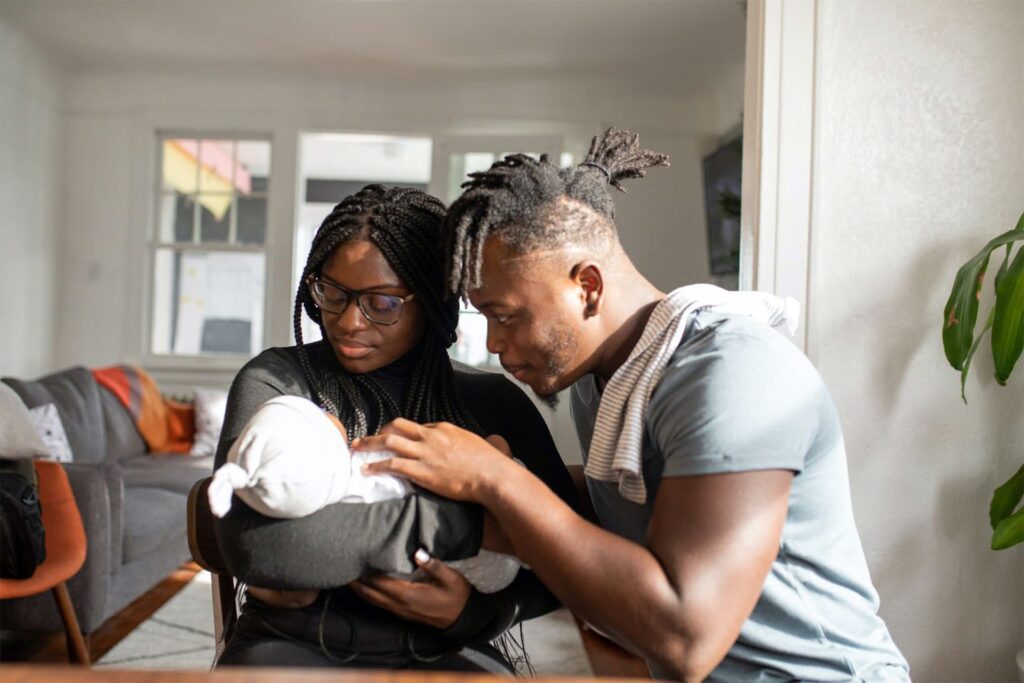Thank you for this opportunity to shed light on why racism is a public health crisis AND how racism impacts health and well-being of birthing families in NYC. Some community-based solutions will be discussed in a panel later today.
First, I will explain that I am the daughter of an interracial couple who experienced frequent episodes of bigotry and discrimination so I was not surprised that some of my white colleagues were prejudiced. I have overheard disdainful comments about patients of color made by white medical professionals because they did not know I am Black.
What I did not realize for most of my career was how bias and paternalism led directly to mistreatment and neglect, resulting in harm and traumatic birth experiences. I did not learn until about 5 years ago that higher rates of complications among Black mothers are often related to the biological impacts of the chronic stress of growing up Black in America. The prevailing medical opinions in the 80’s and 90’s were that life style and infections were the cause. This is called “Mother Blaming”. There are several stereotypical narratives which are passed down since slavery blaming Black people for poor health outcomes and these are part of medical education. Even today 50% of doctors in training believe that Black people have higher tolerance for pain. Despite data proving otherwise, many medical professionals cling to their biases and don’t realize they are mistreating, disrespecting, and not listening to their Black patients. Tennis Greatest of all time Serena Williams pointed this out after her birth complications.
Maternal health crisis statistics in the US and NYC:
754 women died and 50,000 almost died of pregnancy related complications in 2019. 658 died in in 2018. According to the CDC, 2/3rds of these deaths and complications are preventable. The US maternal death rate has doubled since the 90’s, while the rest of the world has been reducing maternal mortality. We rank 55th behind Russia and just ahead of Ukraine. And despite the fact that the US spends at least twice as much as all other wealthy nations, our maternal death rates were at least 3 times higher. I think its worth noting that births everywhere else are attended by midwives and here 90% of babies are ‘delivered’ by doctors. Black women with college degrees die 5 times more than their White counterparts. These disparities exist even when allowing for preexisting risk factors like age and obesity.
In 2017 in NYC out of 21 deaths from pregnancy related causes 11 were Black mothers, 6 Latinas. 3,000 birthing people almost died, 947 of whom were Black mothers. In NYC 8 times as many Black women die of pregnancy complications as White women. And I want to repeat the point that most of pregnancy related deaths are preventable. Too often Black women report warning signs and their concerns are dismissed. In a recent survey of birthing people mistreatment was reported by 1 in 6 mothers, and was twice as common for people of color than whites.
In a 2017 survey by Harvard School of Public Health and NPR, 32% of African Americans report discrimination in healthcare settings. Racism in the healthcare system is one root cause of this public health crisis. Another is racial oppression influencing every aspect of Black life since slavery and continuing in the present with discrimination in hiring and housing, segregation and underfunding of schools and hospitals, racial profiling and mass incarceration, I could go on. African features have been stigmatized as part of white supremacist ideology to justify slavery and oppression. It remains embedded in society.
Experts in public health today will tell you that it’s racism that’s killing Black mothers. And racism also is the reason Black infant mortality is two to three times that of white babies. I will give you just two studies to show how we know it’s racism and not race or socioeconomic status that is deadly. Recently in a study in Florida of 1.8 million births, the death rate of Black newborn babies under the care of Black doctors was half the death rate under the care of white doctors. A study in Detroit comparing birth weight of babies born to African American mothers, white mothers, and African immigrant mothers showed that African babies and White babies had the same birth weight but African Americans babies were significantly smaller. African ancestry does not increase risk of death. Race is a social construct, not a biological difference. Pregnancies of mothers who experienced racism through their life course are at increased risk due to the biological impacts of stress. Cardiovascular health is also impacted by racism and discrimination. This is why African Americans need and deserve better medical care not worse. Racism is a public health crisis and has been for centuries.
The Ongoing Tragedy – An Iceberg of Harm
The main message to take away is that the premature deaths of Black people, either in the care of doctors, or at the hands of the police, is the tip of an iceberg. When it comes to maternal health, the disproportionate numbers of Black women dying of pregnancy related complications is the tip of an iceberg of harm experienced by Black families, in this city and throughout the African Diaspora.
Interviews conducted by NYC DOHMH of 15 mothers who almost died in NYC hospitals revealed that most experienced microaggressions and disrespectful communication with their providers.
During pregnancy, and especially during the birthing process, treatment decisions, which go against patients’ wishes, are frequently made without their input. Labor & Delivery routines are often not based on medical evidence, and go against the natural process of human labor and birth. Informed consent to undergo obstetrical interventions is often based on opinions of providers and not sound evidence, and birthing persons’ preferences are not respected. Worst of all birthing people experience coercion without regard for their human rights. For example, a birth companion in Brooklyn told me that a Haitian Creole speaker was forced to have an emergency C-section without an interpreter. Doulas I speak to tell me laboring women are pressured into vaginal examinations and procedures as if they had no bodily autonomy, which is basically rape culture. It’s called Active Management of Labor and its part of the training of doctors in New York City hospitals, it was the same when I trained.
A Brief History of Maternity Care
We must study the history of racism and patriarchy in maternity care to understand why deaths of both white and Black women have been rising in the United States since the 90’s.
For centuries women with skills supported other women giving birth. The traditional midwifery model of care supports a spontaneous birth under a birthing person’s own power, usually without intervention.
In the 1800’s US doctors experimented on poor and enslaved women to develop the medical specialty of Obstetrics and Gynecology. They introduced instrumental delivery with forceps and surgical interventions like C-sections and episiotomies. They pathologized and medicalized the natural process of birth. Â In the early 1900’s hospitals and doctors began to capitalize on birthing. They put traditional indigenous and Black midwives out of business by spreading the narrative that midwives were dirty and uneducated and that birth was a dangerous condition requiring a doctor’s services. Midwifery was essentially outlawed in the 1920’s and 30’s. C-sections and other medical Interventions have increased in the 100 years since, leading to increasing complications. The medicalization of birth and development of technological innovations have increased revenue for hospitals. Since the late 1980’s Doctors have been under increasing production pressure to see more patients at a faster pace due to declining reimbursement from health insurance and increasing costs. Nurses are expected to do more in less time. Hospitals serving Black communities and rural communities have closed for lack of funding.
Many doctors don’t realize how medicalization of birth and lack of respect for mothers’ autonomy and dignity interferes with the natural power of human birthing. About 80% of birthing people are low risk for complications and don’t need the obstetrical model of care controlled by hospitals and physicians. There should at least be the option to receive culturally congruent community care. The research evidence supports making person centered care with a midwife, and the support of a birth companion also known as doulas, available to improve maternal health outcomes. There is excellent work happening in the community by the NYC DOHMH, but their efforts are underfunded. From the White House and Congress to the state house to the Mayor’s office there are efforts to improve care, including access to out of hospital birth, but the needed transformation of maternity services requires bolder action within hospitals and among doctors. I want to emphasize that the steps currently being taken to address the Black Maternal Health Crisis are just baby steps compared to the centuries of racial oppression and trauma which continues today. We are a long way from the culture of respect in medicine.
I believe most clinicians care about their patients, but they are affected by our society and the culture of medicine. My nonprofit, the Black Coalition for Safe Motherhood, is offering a toolkit for communicating with and hopefully partnering with providers. Knowing what I do about the biases they have and the pressures that medical professionals are under I have cocreated the ACTT Curriculum with other birth justice activists. ACTT stands for:
Ask questions until you understand the answers
Claim Your Space – both physical and mental
Trust Your Body
Tell Your Story
I cofounded the Black Coalition for Safe Motherhood to spread these self-affirming and potentially lifesaving steps in Black Communities nationwide and beyond. Using the ACTT steps, my hope is that Black birthing people and their families and supporters will be better equipped to navigate healthcare until it is transformed into compassionate person-centered care that everyone deserves.


